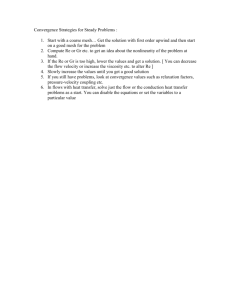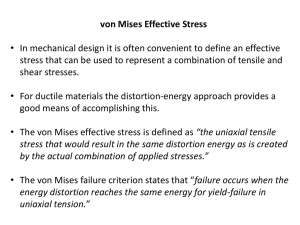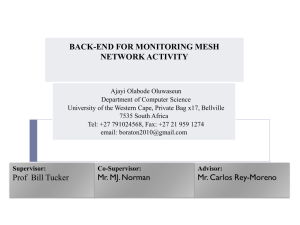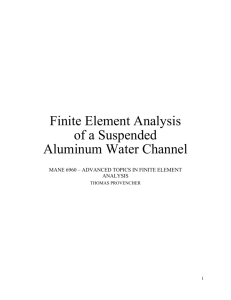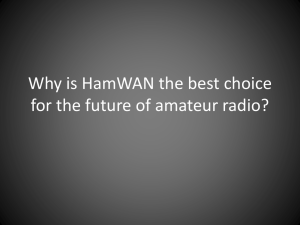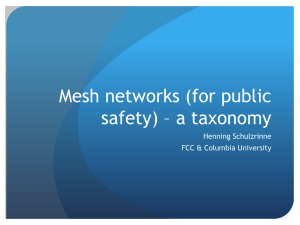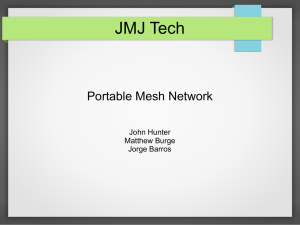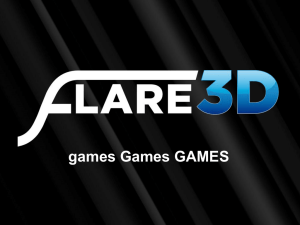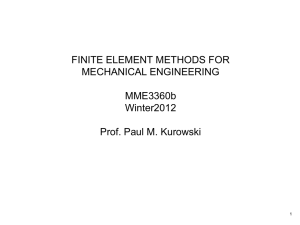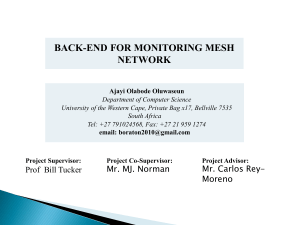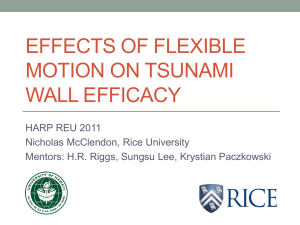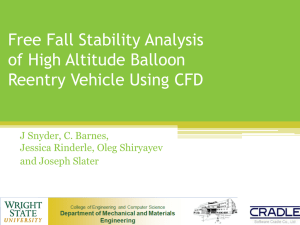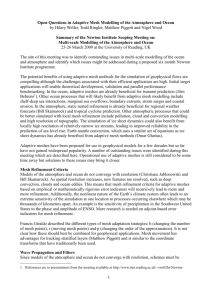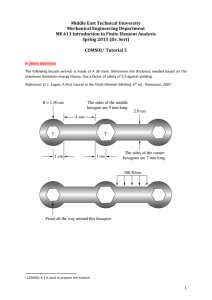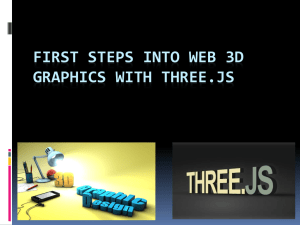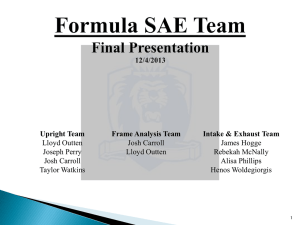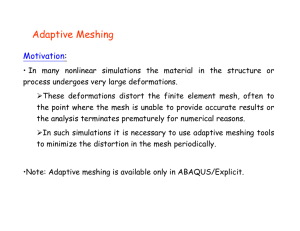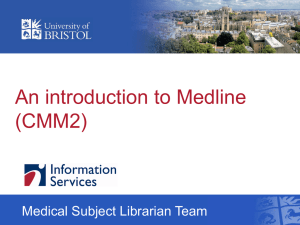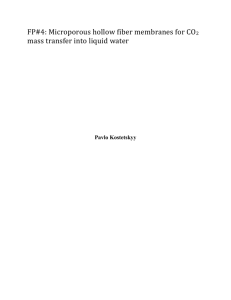Assignment 1
advertisement
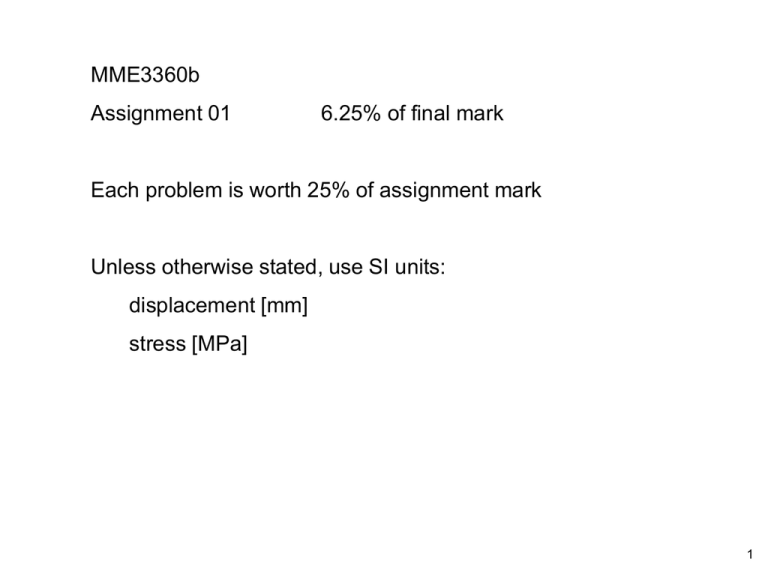
MME3360b Assignment 01 6.25% of final mark Each problem is worth 25% of assignment mark Unless otherwise stated, use SI units: displacement [mm] stress [MPa] 1 PROBLEM 1a Perform convergence analysis of HOLLOW PLATE (chapter 2) by means of global mesh refinement. Use three meshes: coarse, default and fine. Summarize displacement and von Mises stress results in the table #DOF Displ VMnodal VMelement VMnodal VMelement mesh 1 mesh 1 mesh 3 Graph (Excel) the following as function of the number of degrees of freedom, use log scale on x axis. • maximum resultant displacement • maximum von Mises nodal stress (averaged stress) • maximum von Mises element stress (non averaged stress) Explain the reasons why displacement and stress increase with the increase of the number of degrees of freedom. Explain why the difference between the nodal and element stress decreases with mesh refinement. Explain why the effect of mesh refinement is much greater for von Mises stress that for maximum displacement. 2 PROBLEM 1b Repeat solution of problem 1a using h-adaptive solution method. Use a coarse mesh (different from problem 1a) as a starting point. Use settings as shown below. Create graph showing convergence of von MIses stress, use graph tool in SW Simulation. Summarize results from the final run in the table: #DOF Displ VMnodal VMelement VMnodalVMelement h adaptive 3 PROBLEM 2a Use model configuration without round fillet. Perform convergence process of L BRACKET (chapter 3) using local mesh bias (mesh control). Create the same table and graph (Excel) as in PROBLEM 1a Explain the reasons for divergent stresses. PROBLEM 2b Use model configuration without round fillet. Perform convergence process of L BRACKET using h adaptive process with default mesh as a starting point. Create the same table as in PROBLEM 1b. Use graph tool in SW Simulation to prepare the graph. Explain the reasons for divergent stresses. PROBLEM 2c Use model configuration with round fillet. Perform convergence process of L BRACKET (chapter 3) using h adaptive process with default mesh as a starting point. Create the same table and graph as in PROBLEM 1b. Use graph tool in SW Simulation to prepare the graph. Explain the reasons for convergent stresses. 4 PROBLEM 3 Find the maximum force load that model BRACKET (chapter 13) will take. Cut model in half and define symmetry boundary conditions. Material is aluminum 1060 (re-define this material in SW model). Make your conclusions based on converged results, obtain converged results using your choice of convergence method. Use SI units (MPa). Use the factor of safety 2. Discuss the safety criterion you use. Save your discussion in the properties of Simulation study. Max. force load? Symmetry B.C. 5 PROBLEM 4 Find the maximum pressure magnitude the model CLIP will take (chapter 15). Material is ceramic porcelain (re-define this material in SW model). Make your conclusions based on converged results, obtain converged results using your choice of convergence method. Use English units. Use the factor of safety 2. Discuss the safety criterion you use. Save your discussion in the properties of Simulation study. pressure ? Fixed restraint to the bottom 6 Electronic deliverables You will have created the following Simulation studies (study names in blue): HOLLOW PLATE with the following studies: Problem 1a 01 coarse, 02 default, 03 fine Problem 1b 04 h adaptive L BRACKET with the following studies: Configuration 01 no fillet Problem 2a 01 coarse, 02 default, 03 fine Problem 2b 04 h adaptive Configuration 02 fillet Problem 2c 05 h adaptive BRACKET with study: study 1 This study should be saved with the maximum load CLIP with study: study 1 This study should be saved with the maximum load All studies must have all plots, h-adaptive studies must also have convergence graphs. Generate automatic reports in MS Word for each study. ZIP all models (4 part files) and all report files (11 MS Word files) into youremail.zip and upload to assignment drop off box on webCT. DO NOT include *.CWR files or you’ll loose marks. Paper deliverables Does not need to be in color. Drop off into the course locker 2 near SEB3107 Problem 1: Tables/Graphs/Written answers to questions Problem 2: Tables/Graphs/Written answers to questions Problem 3, 4 no paper part 7
